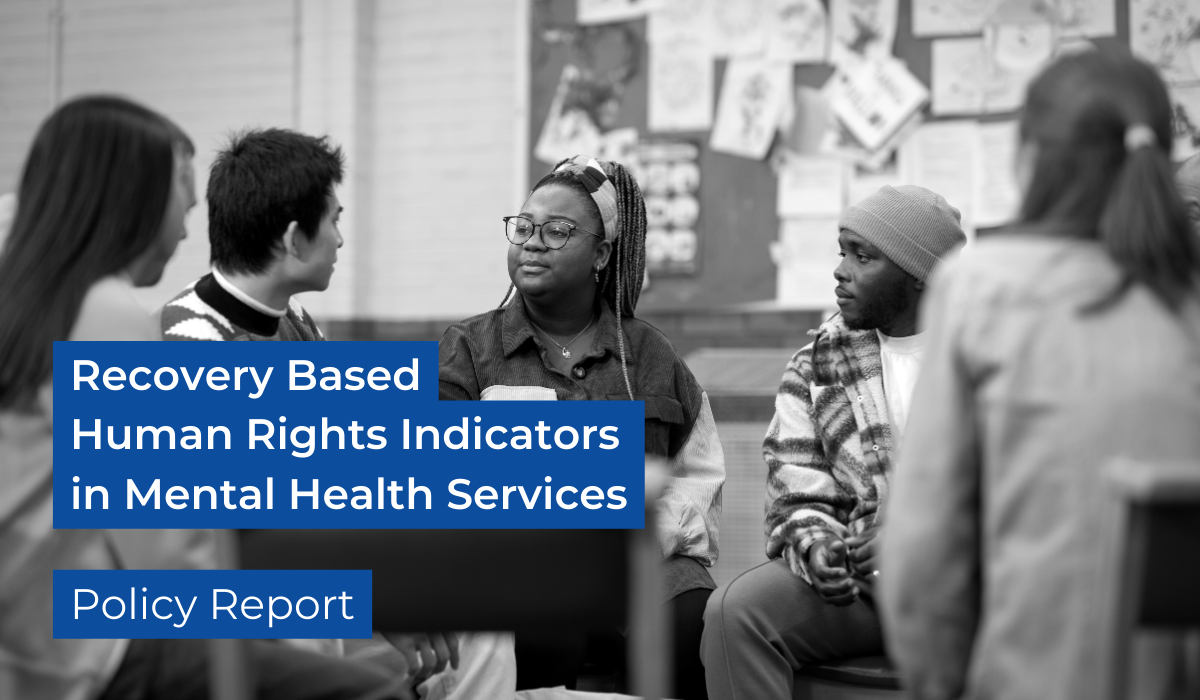Report: Recovery Based Human Rights Indicators in Mental Health Services

Promoting Recovery
On the occasion of the International Day of the Persons with Disabilities 2024, Mental Health Europe releases our latest report “Towards Recovery-Based Human Rights Indicators in Mental Health Services,” laying forward a transformative vision for mental health systems across Europe. Rooted in the principles of the UN Convention on the Rights of Persons with Disabilities (UNCRPD), this report analyses existing definitions, tools, and practices, it identifies gaps in the current approaches and lays the foundation for aligning mental health services with rights-based recovery principles. It advocates for recovery models that prioritize community inclusion, autonomy, and fully respect the human rights under the UNCRPD. It calls for a shift from deficit-based and coercive practices to community-driven, rights-based frameworks and for the creation of indicators that can guide and accompany this change.
Key Insights
1. Human Rights-Based Recovery Definition
The report underscores the need for a unified recovery definition that balances personal empowerment with human rights. This includes promoting autonomy, inclusion in the community, and access to resources while addressing vulnerabilities related to gender, race, and age.
2. Evaluation of Current Recovery Tools
A thorough review of existing measurement instruments reveals gaps in aligning with the UNCRPD. While tools such as the Recovery-Oriented Services Assessment (ROSA) and Recovery Enhancing Environment Measure (REE) are notable, none fully address all human rights dimensions, especially legal capacity and access to justice.
3. Recommendations for Comprehensive Recovery Practices
To bridge these gaps, the report calls for the development of new tools and standards that prioritize rights-based recovery. It also emphasizes the importance of capacity-building initiatives for mental health professionals and peer workers to integrate these principles effectively into practice.
Recommendations
The report presents actionable recommendations to advance recovery practices in mental health services:
- Adopt a Rights-Based Definition of Recovery: Incorporate human rights principles into recovery definitions, ensuring alignment with the UNCRPD.
- Develop Advanced Measurement Tools: Create comprehensive instruments that evaluate recovery practices, with a focus on autonomy, non-coercive care, and legal capacity.
- Invest in Professional Training: Equip mental health professionals with the skills to implement rights-based, recovery-oriented care, while amplifying the role of peer support.
- Ensure Policy Alignment with the UNCRPD: Advocate for legislative reforms that promote community-based care, phase out coercive practices, and protect legal capacity and autonomy.
By bridging gaps between policy, research, and practice, this report serves as a roadmap for transforming mental health services into inclusive, supportive, and rights-based systems. It highlights the urgency of embracing a recovery approach that respects and empowers every individual’s journey toward well-being.
Stay connected
Get our latest news, personal stories, research articles, and job opportunities.

